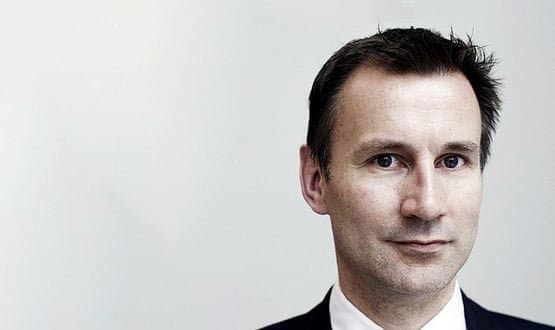Health secretary Jeremy Hunt is optimistic about the future of the NHS because of the “technology revolution” that is about to hit the delivery of health care.
Speaking at the Health and Care Innovation Expo in Manchester yesterday, Hunt said health care has “barely scratched the surface” of the benefits technology can provide.
“We are on the cusp of one of the most exciting changes in the delivery of healthcare that will ever happen in our lifetimes,” he told the packed audience.
A key part of this revolution is the advances that can be made in research using big data. Hunt pointed to NHS England’s care.data programme, which involves extracting a large new dataset from GP practices and linking it with hospital episode statistics, as central to this.
NHS England has been under fire over its handling of the controversial care.data programme and Hunt was last week lampooned in a Downfall-spoof video posted on YouTube as “hiding behind a tree” while director of patients and information Tim Kelsey takes the flak.
He said yesterday that Kelsey has been having a hard time, but described him as brave for starting a public debate about the use of NHS data.
“(Kelsey) was the first person to say, ‘if you go on using this data and using more than you used before than you need to give people the right to opt-out’,” said Hunt.
“That’s a big thing to say and we are the first country in the world saying that because we want to take the public with us.”
Much of Hunt’s speech repeated what he said at a Cambridge Health Network event in February, including his claim that a memorandum of understanding signed by the US and UK will help to create the world’s largest single market for mobile health apps.
“Any app developed in the US and approved by the US authorities will be automatically approved in the UK and any app approved in the UK will be automatically approved in the US,” he said.
However, an NHS England spokesperson previously told EHI the health secretary was referring to applications when he spoke and therefore vendor certification, rather than specifically smart phone apps.
Hunt also reiterated his commitment that one third of all ambulance services, NHS 111 call centres and A&E departments will have access to patients’ GP records by the end of this year.
He said that by April 2015, 95% of patients will be able to access their own health records, order repeat prescriptions and book appointments online. The original commitment was that all patients that wanted to would be able to do this and the reason for the change to 95% was unclear.
Overall, Hunt said the NHS is making good progress towards its target of becoming paperless by 2018.
You can hear all of Hunt's speech, recorded by EHI, online.

